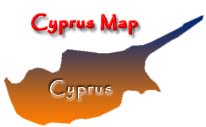UN envoy: Both sides on Cyprus are determined to find a solution
 Nicosia - The new UN envoy to Cyprus said Tuesday he was encouraged that both leaders of the divided island were determined to find a solution to their decades-old conflict.
Nicosia - The new UN envoy to Cyprus said Tuesday he was encouraged that both leaders of the divided island were determined to find a solution to their decades-old conflict.
Former Australian foreign minister Alexander Downer told journalists that prospects for a solution to the Cyprus conflict were never as positive.
He was encouraged by the determination of both Greek Cypriot leader Dimitris Christofias and Turkish Cypriot leader Mehmet Ali Talat to find a mutually-acceptable solution.
"There are areas which still need to be ironed out however," Downer said, adding he would return at the beginning of September for the launch of peace negotiations.
The two leaders of the ethnically-divided island agreed last week to re-launch full-fledged peace negotiations on September 3, ending a four-year deadlock in efforts to bring the two communities together.
Christofias and Talat said any agreed solution would be put to separate, simultaneous referenda in the north and the south.
They added they agreed to establish a secure hotline to facilitate direct talks between them.
The two leaders have held four meetings since March to discuss progress made by working and technical groups striving to set the groundwork for the start of peace talks, which aim at ending the decades-old division of the island.
The working and technical groups from both communities are trying to narrow the divide on a number of issues, ranging from environmental protection, health, culture, security, power-sharing, ways of linking the island's two economies as well as property and territorial disputes.
During talks last week, the two leaders approved 16 more measures in the areas of environment, cultural heritage, crisis management and criminal matters, and ordered their immediate and full implementation.
They also instructed their representatives to look into the opening of the Limnitis (or Yesilirmak in Turkish) crossing.
Peace talks had deadlocked after former president Tassos Papadopoulos led the Greek-Cypriot rejection of a UN reunification plan in a 2004 referendum. Turkish Cypriots had overwhelmingly voted in favour.
With newly-elected Christofias in office, expectations are running high for a breakthrough in efforts to reunite the island, which has been divided since 1974 after Turkey invaded the northern third in response to an Athens-led coup to reunite the island with Greece.
In a recent effort to illustrate their commitment to peace, Christofias and Talat in April jointly opened a north-south crossing point in the heart of the divided capital, which had come to signify the island's division.
Only the southern part of Cyprus is a member of the European Union, while the Turkish Cypriots have repeatedly called on the bloc to end an economic embargo on the northern part, which is only recognized internationally by Turkey.
The two sides have agreed in principle to reunite the island as a federal state composed of two constituent states, which would guarantee the equality of both communities. Until now, however, the sides have not been able to agree on a procedure. (dpa)